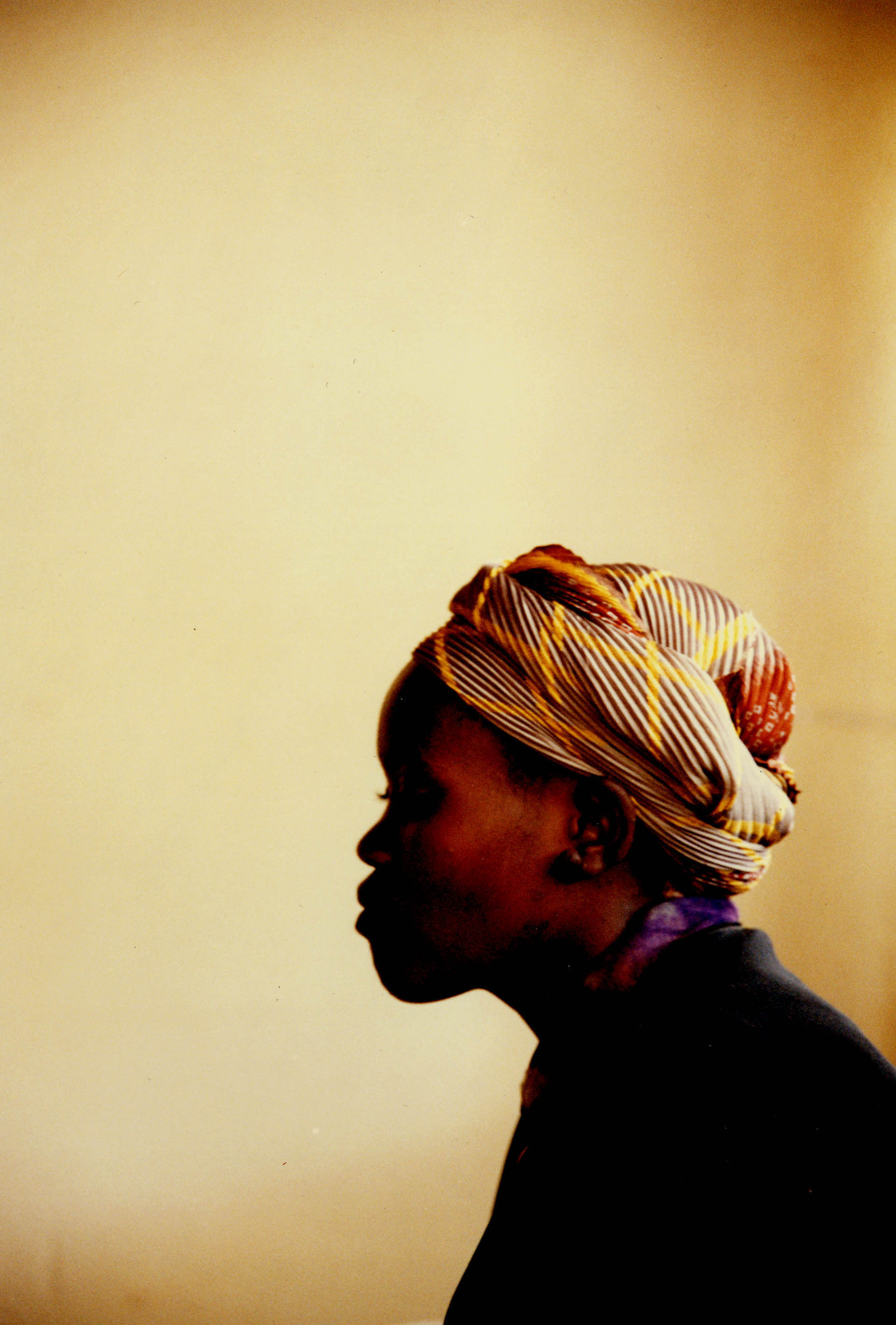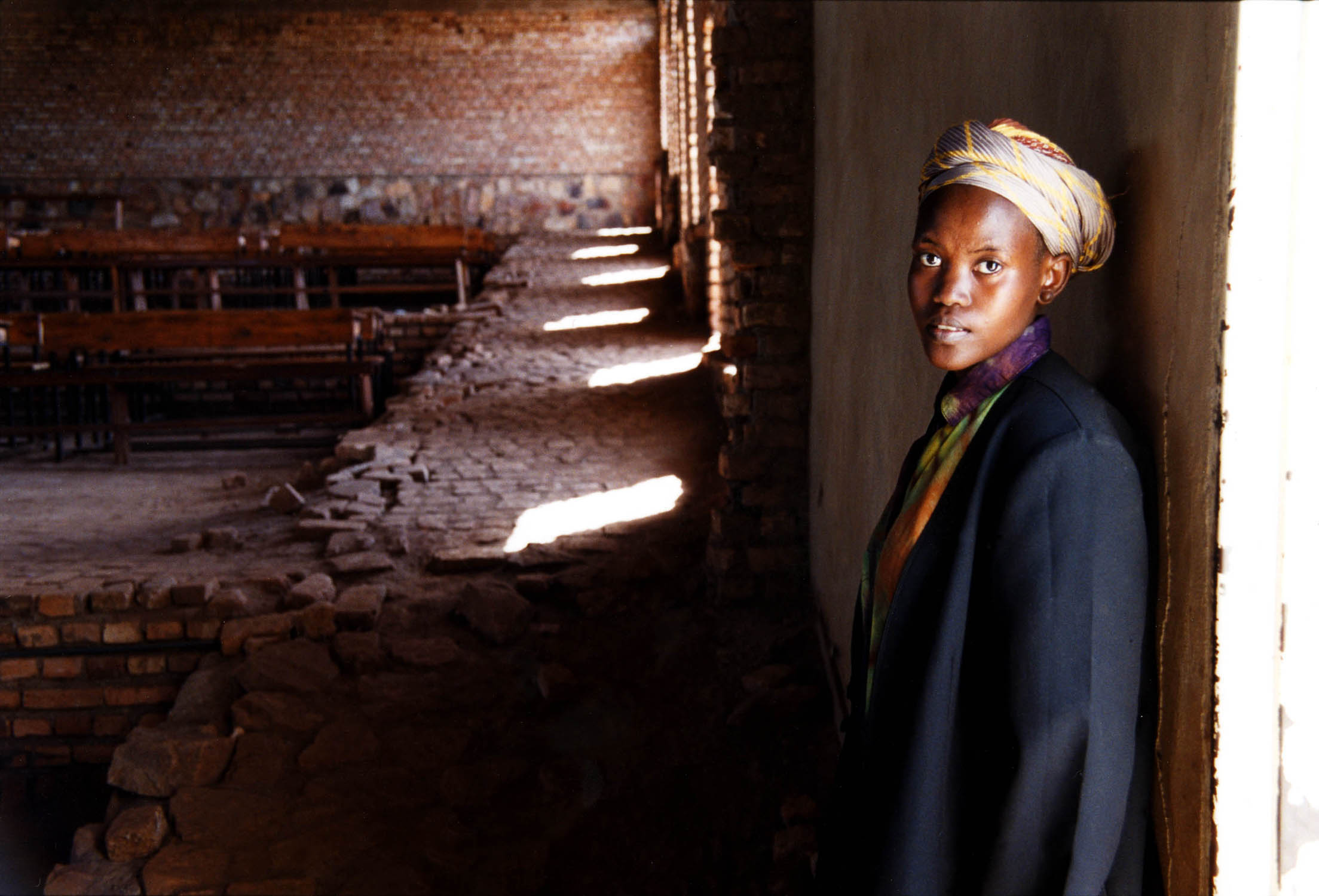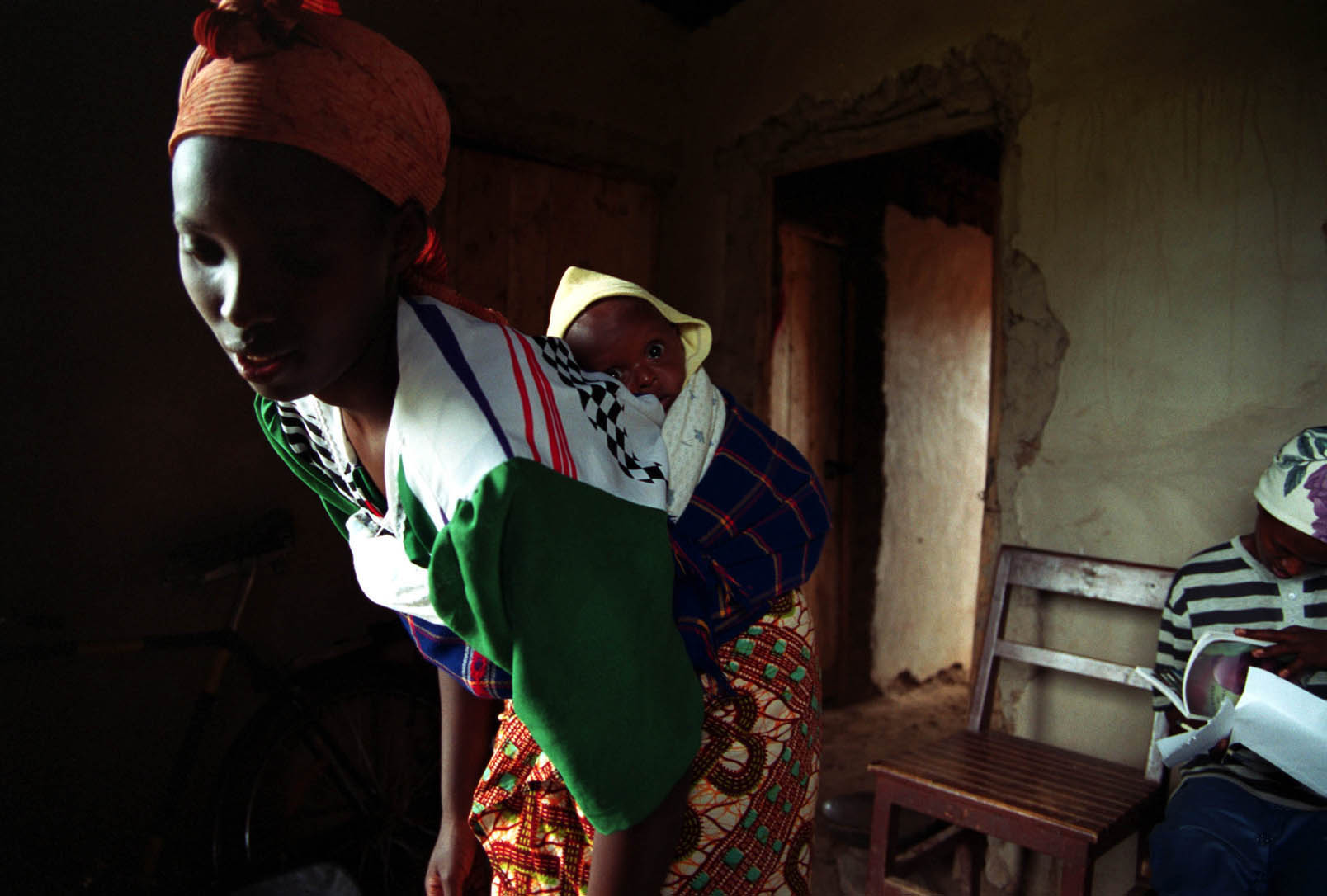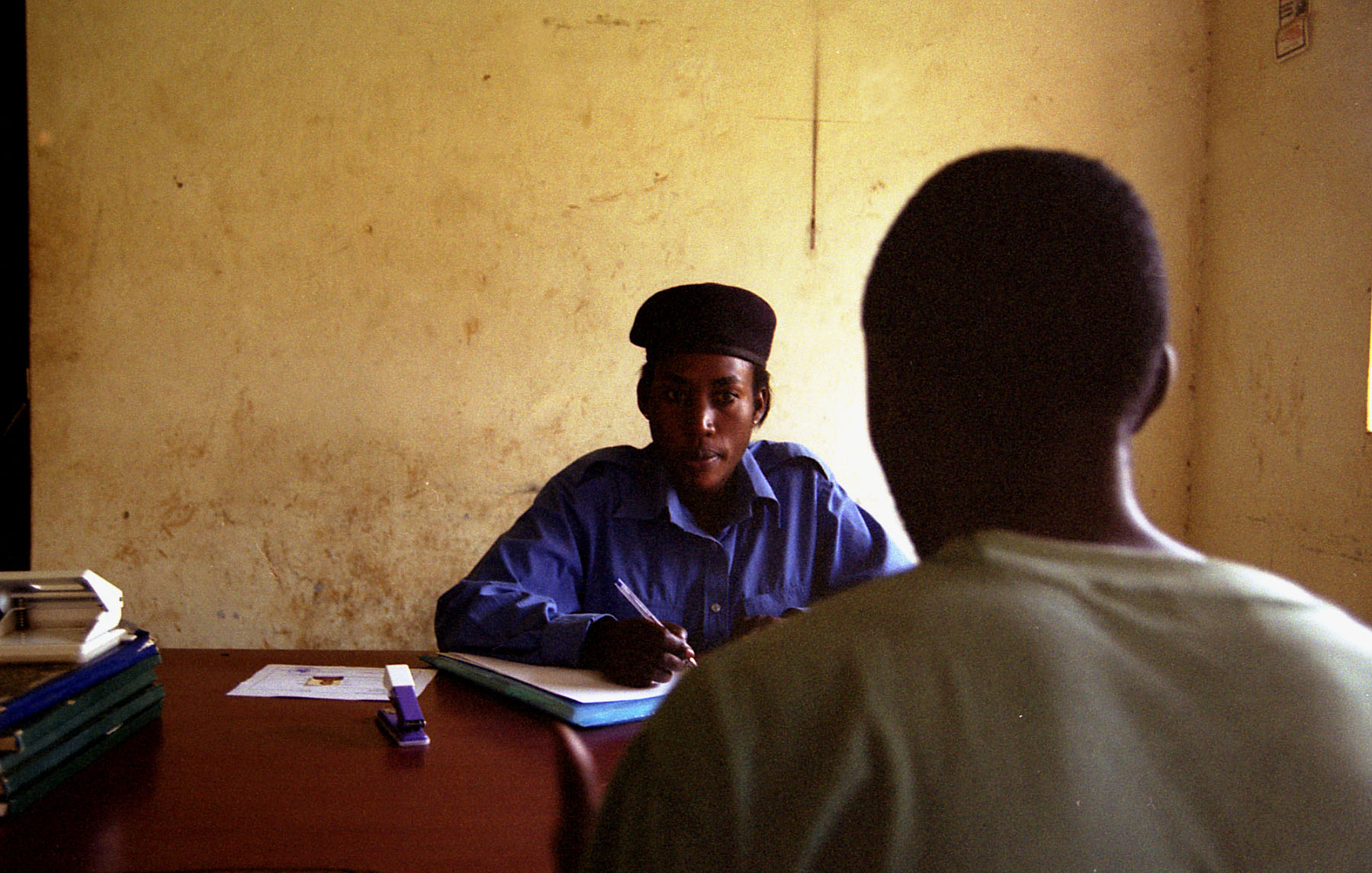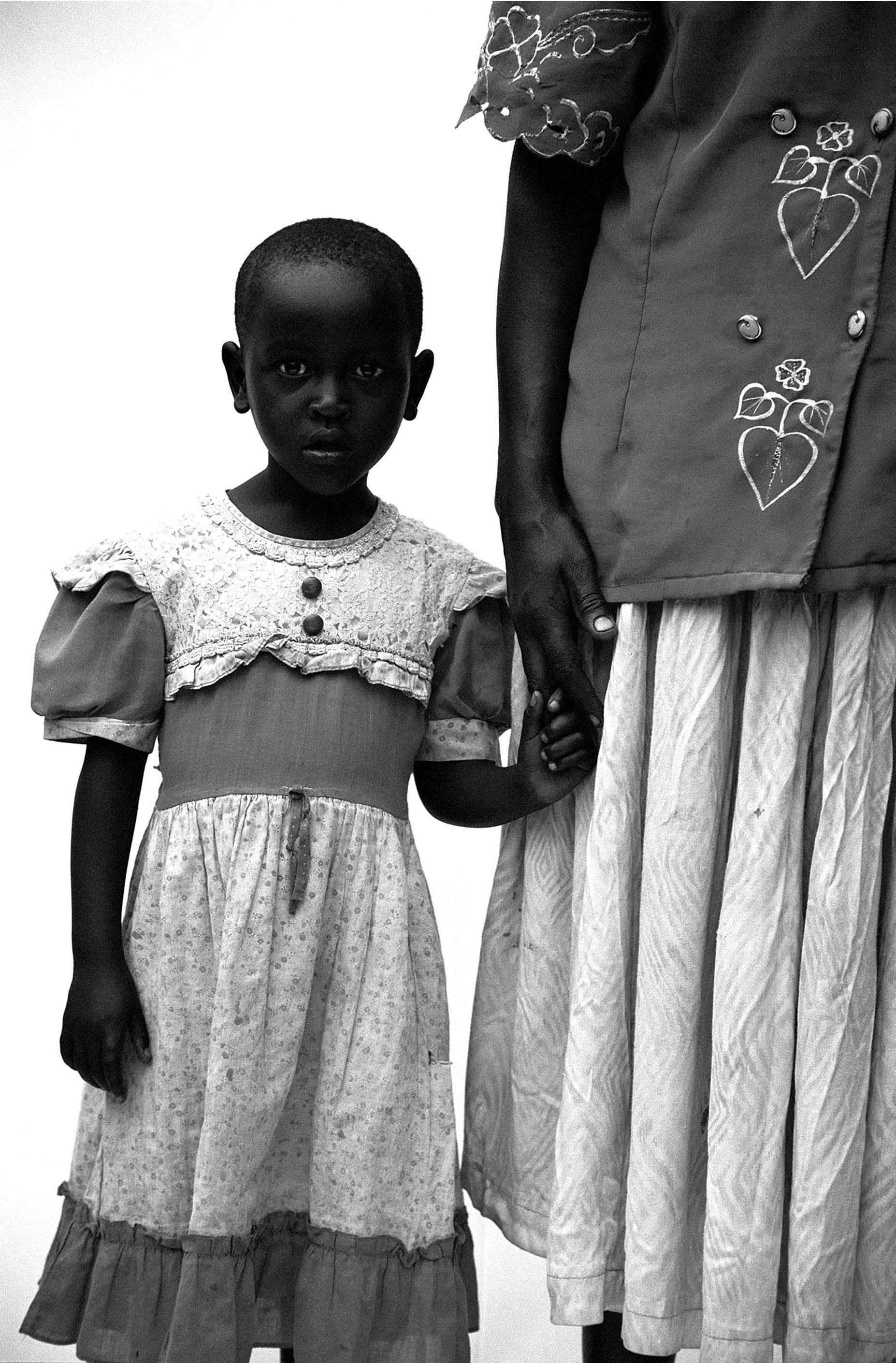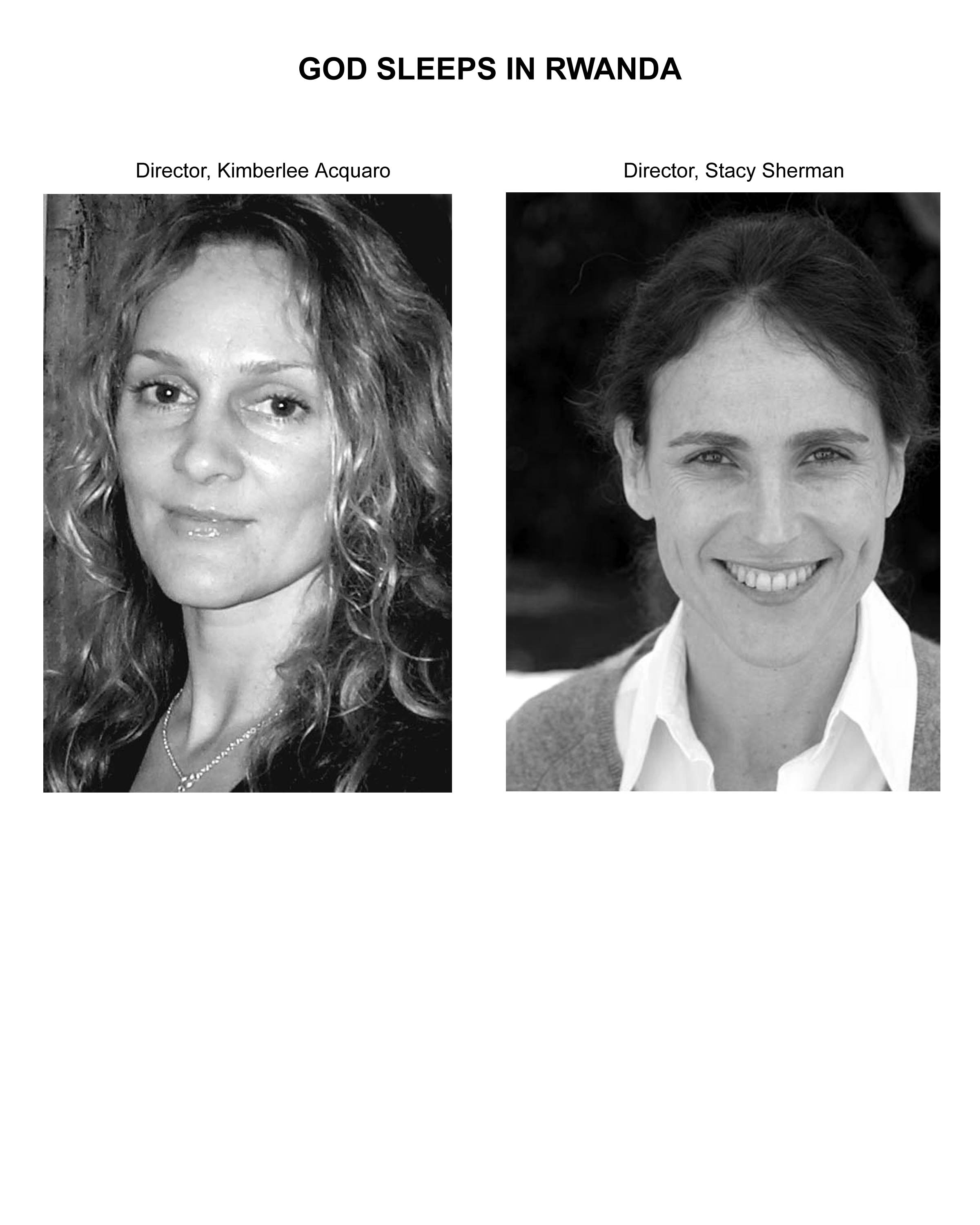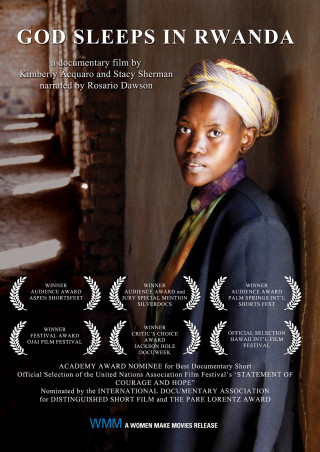
God Sleeps in Rwanda
Rwanda/US | 2004 | 28 minutes | Color | DVD | Kinyarwanda | Subtitled | Order No. 06899
SYNOPSIS
The 1994 Rwandan Genocide left the country nearly 70 percent female, handing Rwanda’s women an extraordinary burden and an unprecedented opportunity. Ten years later, girls were attending school in record numbers, and women were a large part of the country’s leadership. Working with two cameras and no crew except for their translator—a genocide survivor herself—the filmmakers uncover incredible stories: an HIV-positive policewoman raising four children alone and attending night school to become a lawyer, a teenager who has become head of household for her four siblings, and a young woman orphaned in her teens who is now the top development official in her area. Heart-wrenching and inspiring, this powerful film is a brutal reminder of the consequences of the Rwandan tragedy, and a tribute to the strength and spirit of those who are moving forth.
PRESS
”Women and children are often the first victims of armed conflicts, and the ones most overlooked. GOD SLEEPS IN RWANDA affords these women the opportunity to emerge from the shadows to tell their stories and inspire us with their courage and quiet dignity and, hopefully, compel us to act on behalf of so many victims.”
“…filled with gripping testimonies and haunting stories of one of the worst crimes against humanity of the past century… But rather than catalogue simple stories of desperation and loss, [the film] tells stories of hope, of renewal, of endurance, of family, of community, and, ultimately, of redemption.”
“Everyone must see this film of inspiration and human courage. It is our responsibility to pay respect to all the women who lived and made this film touch our lives, our hearts.”
“Outstanding.. inspiring. An incredibly powerful portrait of the courage of Rwanda's women.”
“Haunting and compelling…Highly recommend[ed]…can be used to support African and gender studies, as well as studies to analyze the psychological and sociological cause and effects associated with genocide.”
“Recommended to both academic and public libraries for a human perspective on the genocide in Rwanda and its impact on the country and its people.”
SCREENING HIGHLIGHTS AND AWARDS
- Academy Award Nominee for Best Documentary Short
- Festival Award, Ojai Film Festival
- Audience Award, Palm Springs Fest of Short Films
- Critic's Choice Award, Jackson Hole Docuweek IDA
- Jury Special Mention, Silverdocs Documentary Festival
- Audience Award, Silverdocs/AFI Film Festival
- Audience Award, Aspen Shorts Fest
- World Cinema Short Award, Phoenix Film Festival
- Best Independent Mini Doc, Black Reel Awards
- Emmy Award for Best Documentary
- Hawaii International Film Festival
- Bahamas International Film Festival
- Ladyfest, Chicago, IL
- Flickerfest International Short Film Festival
- Artists for Amnesty
- Pacific Palisades Film Festival
- United Nations Traveling Film Festival
- International Documentary Association, Docuweek
- Woodrow Wilson International Center, Washington DC
- Steven Spielberg’s Shoah Foundation, Los Angeles, CA
- Harvard University’s Carr Center for Human Rights
- The Boston Museum of Fine Art
- Amnesty International’s Stop Violence Against Women
- Nominee, Distinguished Short Film International Documentary Association
- Nominee, Pare Lorentz Award, International Documentary Association
- African American Women FF
ABOUT FILMMAKER(S)
Kimberlee Acquaro is an American filmmaker and photojournalist who, over her career, has been nominated for an Academy Award and has won an Emmy for Best Documentary. Her film GOD SLEEPS IN RWANDA garnered international awards and was featured on HBO. Her work has also been featured on CNN, CBS, NPR, “The Tavis Smiley Show”, “The Voice of America,” BBC/PRI’s “The World” and has been shown in various museums accross the United States including MOMA and the United States Holocaust Memorial Museum in Washington D.C. Acquaro’s journalism work has appeared as The New York Times Magazine cover stories as well as in The Washington Post Magazine, Time Magazine, U.S. News & World Report, Interview, Mother Jones and many international publications. She was awarded a prestigious Pew Fellowship in International Journalism and a Residency at Johns Hopkins School of Advanced International Studies for her work in Rwanda. She also received a Guggenheim Fellowship for her work on race in America through the eyes of African-Americans over the age of 100 in I'LL RISE. Acquaro now lives with her family in Venice, California. (1/20)
Stacy Sherman, native of Los Angeles, is an award winning writer/director. Sherman Co-Wrote, Co-Produced and Co-Directed the documentary God Sleeps In Rwanda, which chronicles the story of five survivors, whose lives were irrevocably altered, 10 years after the Rwandan genocide. Sold to HBO, God Sleeps in Rwanda was nominated for an Academy Award and won an Emmy. As a writer, Sherman has sold screenplays to Twentieth Century Fox, Tri-Star Entertainment & Warner Bros. She co-wrote the screenplay, One for the Money, based on the best-selling book series by Janet Evanovich. The feature film, which stars Katherine Heigl, released by LakeShore Entertainment & Lionsgate, opens this month. (8/14)
As a child, Dawson made a brief appearance on Sesame Street. At the age of 15, she was subsequently discovered on her front porch step by photographer Larry Clark and Harmony Korine, where Korine lauded her as being perfect for a part he had written in his screenplay that would become the controversial 1995 film Kids. She went on to star in varied roles, ranging from independent films to big budget blockbusters including RENT, HE GOT GAME and MEN IN BLACK II.
In 2009, Dawson performed in THE PEOPLE SPEAK, a documentary feature film that uses dramatic and musical performances of the letters, diaries, and speeches of everyday Americans, based on historian Howard Zinn's A People's History of the United States.
In 2009, Dawson also voiced the character of Velvet Von Black in Rob Zombie's animated feature, THE HAUNTED WORLD OF EL SUPERBEASTO. For the Kasabian album West Ryder Pauper Lunatic Asylum, she is featured singing on the track "West Ryder Silver Bullet".
In 2010, she starred in the movies PERCY JACKSON & THE OLYMPIANS: THE LIGHTNING THIEF, as Persephone, and UNSTOPPABLE, as railway yardmaster Connie. In 2013, she played Apple's mother in the independent film GIMME SHELTER. (8/14)
Subject Areas
RELATED LINKS
MATERIALS

